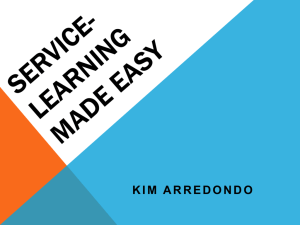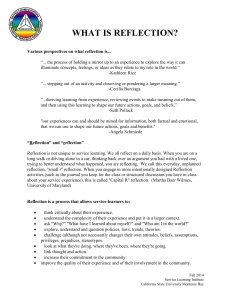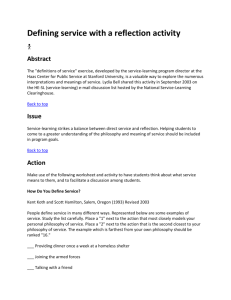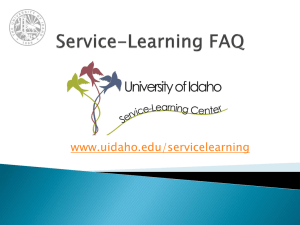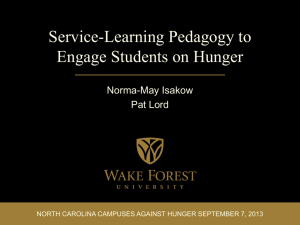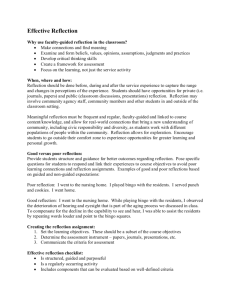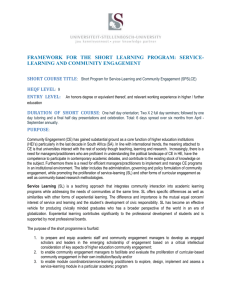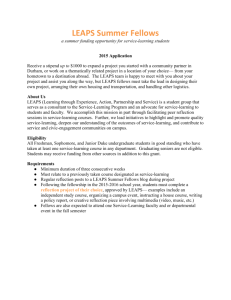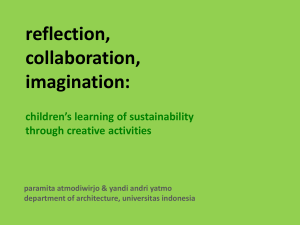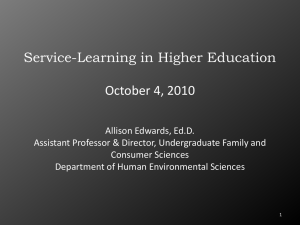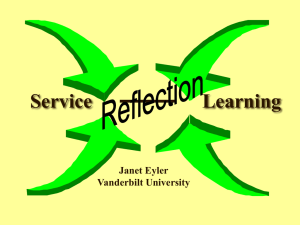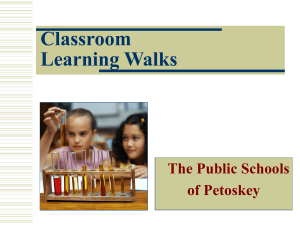Service-Learning Made Easy
advertisement
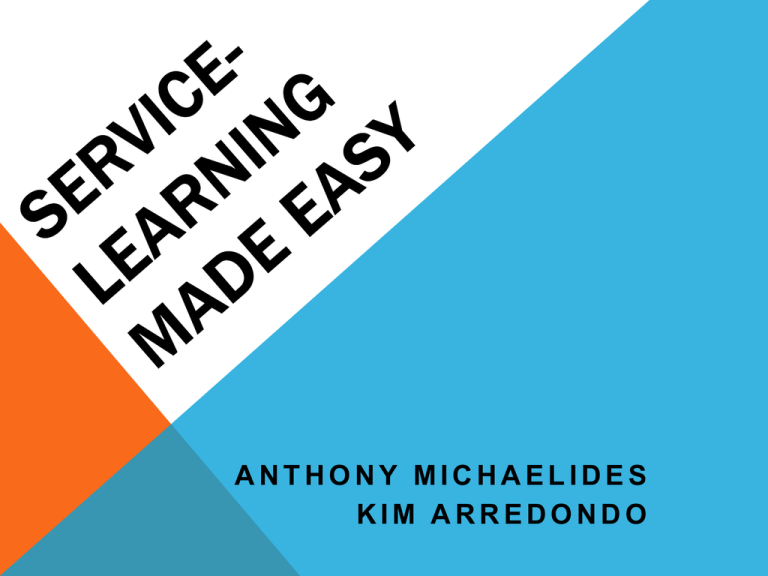
ANTHONY MICHAELIDES KIM ARREDONDO WHAT IS SERVICE-LEARNING? • Service-learning is a teaching and learning strategy that integrates meaningful community service with instruction and reflection, to enrich the learning experience, teach civic responsibility, and strengthen communities WHAT IS SERVICE-LEARNING (CONT.) • Hands-on approach to teaching and learning • Connects the classroom to the needs of the community • Allows students to take control of their learning experience • Allows for structured reflection to integrate study and service Five “C’s” OF SERVICE-LEARNING • Course of study • Civic responsibility/Community need • Connects the course with the community need • Critical thinking/Reflection • Clarification of career-related information DEFINITIONS Volunteer - An activity or service that involves spending time doing something that benefits someone else, the community or the environment. Unpaid Internship – Directed, practical work experience in which students sharpen skills, gain experience and get a taste of a specific career area Service-Learning – Hands-on experience with a connection to academics, and involves critical thinking through reflection WHAT IS REFLECTION Reflection is the process of deriving meaning and knowledge from experience, and occurs before, during, and after a Service-Learning project. Effective reflection engages both teachers and students in a thoughtprovoking process that consciously connects learning with experience REFLECTION FORMATS: - Journaling - Essay - Presentation - Project BENEFITS FOR STUDENTS • Stronger connection to coursework and community • Networking • Reinforces work-related skills: Communication Teamwork Planning/organization Etc. • Provides structure/deadlines • Student Development Transcript/Certificate of Completion • Career Exploration • Resume Builder BENEFITS FOR FACULTY - Better understanding of academics We remember 10% of what we hear 15% of what we see 20% of what we hear and see 60% of what we do 80% of what is done actively with reflection (Service-Learning) 90% of what we teach others - More engaged students (retention) - Alternative Assignment/Extra Credit Research conducted by Gary Phillips, reported in H.C. Silcox (1993) A How to Guide to Reflection: Adding Cognitive Learning to Community Service Programs. Philadelphia, PA: Brighton Press PROCESS AT COC Faculty member signs up We set up your own page Agencies are selected Hour requirement determined (10, 15, etc.) Weight of the assignment (extra credit, requirement of course, etc.) • Reflection assignment determined • • • • • EVENTS - PARTICIPATION • Non-Profit Fair – Fall Semester • Non-Profit Luncheon – Spring Semester • Video • Reflection Workshop INTERESTED? QUESTIONS? • Contact our office at 362-3231 • Contact Kim at ext. 3729 • Contact Anthony at ext. 3253 Thank You
